Solar Ash offers something few games dare to provide: gameplay focused on a simple set of tools that never expands, where progression isn’t about gear or skills or levels beyond a slight increase in health. In this latest from Heart Machine, the studio behind Hyper Light Drifter, there are only a few core mechanics: skating, climbing, jumping, grappling, and a basic, three-hit-combo attack.
Solar Ash plays like some of the greatest games of the past decade, namely Breath of the Wild and Super Mario Odyssey. Rather than ever giving you the ability to alter or improve those core systems, Solar Ash instead asks you to use them in new and evolving ways. Each new area forces you to rethink how you play without adding anything to the core suite of abilities.
The combat follows a similar pattern, with bosses and enemies requiring more precision, new strategies, or additional mobility techniques to properly conquer. Taking out bosses is also the primary means of progressing the story, which won’t win any awards but does have some fun twists and turns. Side content adds additional flavor, bringing a more personal narrative to a tale with otherwise galactic repercussions.
In short, Solar Ash is a complete package, with stellar gameplay, a well-told story, and a realized world ripe for exploring. Its flaws are few, far overshadowed by the enjoyment out of everything else.
Solar Ash Review: Skating Across the Stars
Solar Ash takes place inside of a supermassive black hole called the Ultravoid. You play as Rei, a Voidwalker who uses the power of God and anime magical space technology to skate into the gravity well, where the fragments of other consumed planets exist as ruins. Her job is to activate a large obelisk called the Starseed that will stabilize the Ultravoid and render it incapable of consuming her home planet.
To enable the Starseed to do the impossible, Rei needs to remove six anomalous energy signatures called Remnants so the device can calibrate properly. Along the way, Rei will discover the fate of the other Voidwalkers, learn the truth about her mission, and have a chance to provide assistance to the few other beings remaining in the Ultravoid.
Gameplay is straightforward. Rei can skate across most surfaces (though not up buildings), grind on railings, climb on weird-looking ooze, and use energy blades to attack her enemies. Traversal is smooth and seamless, with a single button press sending you floating across the world.
You can boost every few seconds for an extra bit of momentum, extending your jumps or safely getting you past a hazard. You can also briefly slow down time to extend your grappling distance or gauge the success of a jump.
These mechanics allow for plenty of gameplay variation like you see in Shrines or Moon Challenges in Breath of the Wild or Mario Odyssey, respectively. She only “advances” by adding single points to her health pool or by equipping different Voidrunner suits, which grant passive bonuses.
Progression is, therefore, almost solely yours. Early areas are straightforward, lacking the gravity and perspective-warping that’s rampant in the later levels. This is true of the bosses as well. The late-game bosses have you going up, down, diagonal, and back again. The first boss is a straight line.
New zones introduce new mechanics, then ask you to make different choices with your movements. The new systems aren’t unique to their zone of introduction, either. You’ll be using them again and again as you make your way deeper into the Ultravoid.
In most cases, the added complexity enhances the gameplay, giving designers more ways to challenge your understanding and skill. It almost always works, and worlds become twisting, three-dimensional mazes, straining your spatial awareness to its limits. New enemy types demand new approach strategies, and the bosses and platforming challenges require ever-higher mastery of the controls and mechanics.
The problems arise not from the level or system design. It’s the camera that gets in the way. As a third-person platformer at its core, Solar Ash’s camera does its best to stay behind Rei when not being actively moved. Combine her fast movement speed and the constantly shifting terrain and actually moving through the world can become a chore. You’ll execute a sequence of jumps flawlessly, only for a piece of geometry to fill half your screen, sending you back to a checkpoint.
Camera failings aren’t the only weak spot in Solar Ash. The story won’t wow anyone familiar with science fiction tropes. You’re likely to predict most of the twists, and even the ones that got me were more a “Hey, that’s neat” than “Holy shit, that was amazing!” It can also be somewhat precious from time to time, leaning heavily on ideas like “lost hope” and camaraderie. Thankfully, these moments are relatively few and far between, and are essentially absent from the side content, where the best writing is.
Solar Ash also has some of the best worldbuilding I’ve seen in a long time. Its mildly cliched themes aside, understanding the Ultravoid, and the cultures within it, is a fascinating ride. Discovering the world’s secrets reminds me of Dark Souls and the best Souls-likes, where every corner could hide some new clue about the story.
The few characters you meet are also quite well realized. Their struggles deal with the same themes present throughout the game — hope, death, loss — but have real human qualities. They don’t need to be human to want purpose, know their loved ones are safe, or hope their actions are not in vain. Sometimes these side stories are silly, other times they’re incredibly sad, but all of them are worth seeking.
If I could ask for anything more of Solar Ash, it would be more gameplay-story integration. We’re only given a little bit about how Voidrunner boots allow for skating across cosmic structures, and Rei’s various abilities are never given much explanation either. Indeed, the fact we’re essentially rollerskating to save an entire planet is never touched on, coming down to “because video games.” This disparity is by no means a dealbreaker, but given the polish of much of the rest of the game, that extra step would have taken Solar Ash to another level.
Solar Ash Review — The Bottom Line
Pros
- Excellent mechanics
- Well-realized world and characters
- Chill but appropriate music
- Buttery-smooth performance
Cons
- Story is cliche at times
- The camera can hinder more than help
Solar Ash is a triumph, especially given the size of the team at Heart Machine. There aren’t many games like it, and its inspirations are among the greatest in the medium. It is much easier to fail at learning from the best, and Solar Ash almost never fails.
Its issues plague even the most beloved titles, and the more I thought about Solar Ash, the more I realized how much I enjoyed every second. I hope you do too.
[Note: Annapurna Interactive provided the copy of Solar Ash used for this review.]

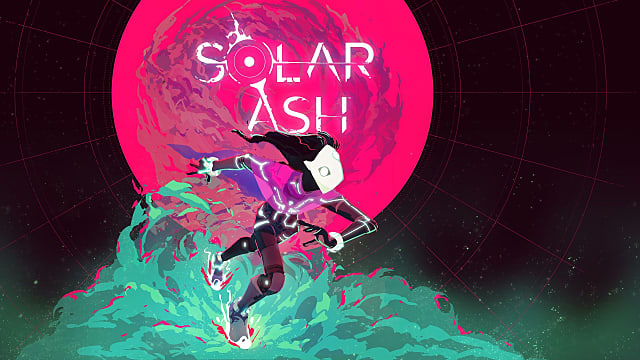
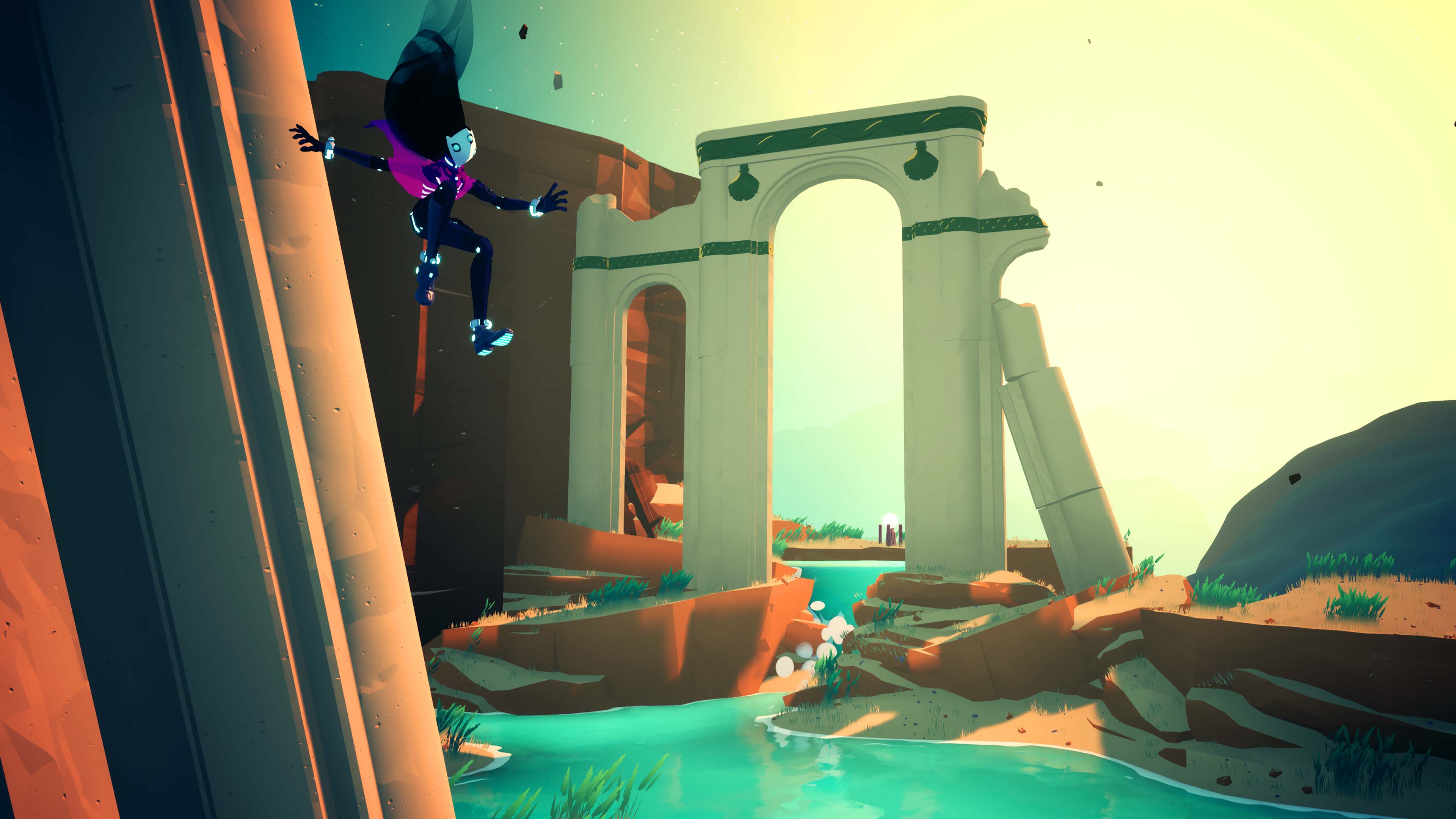
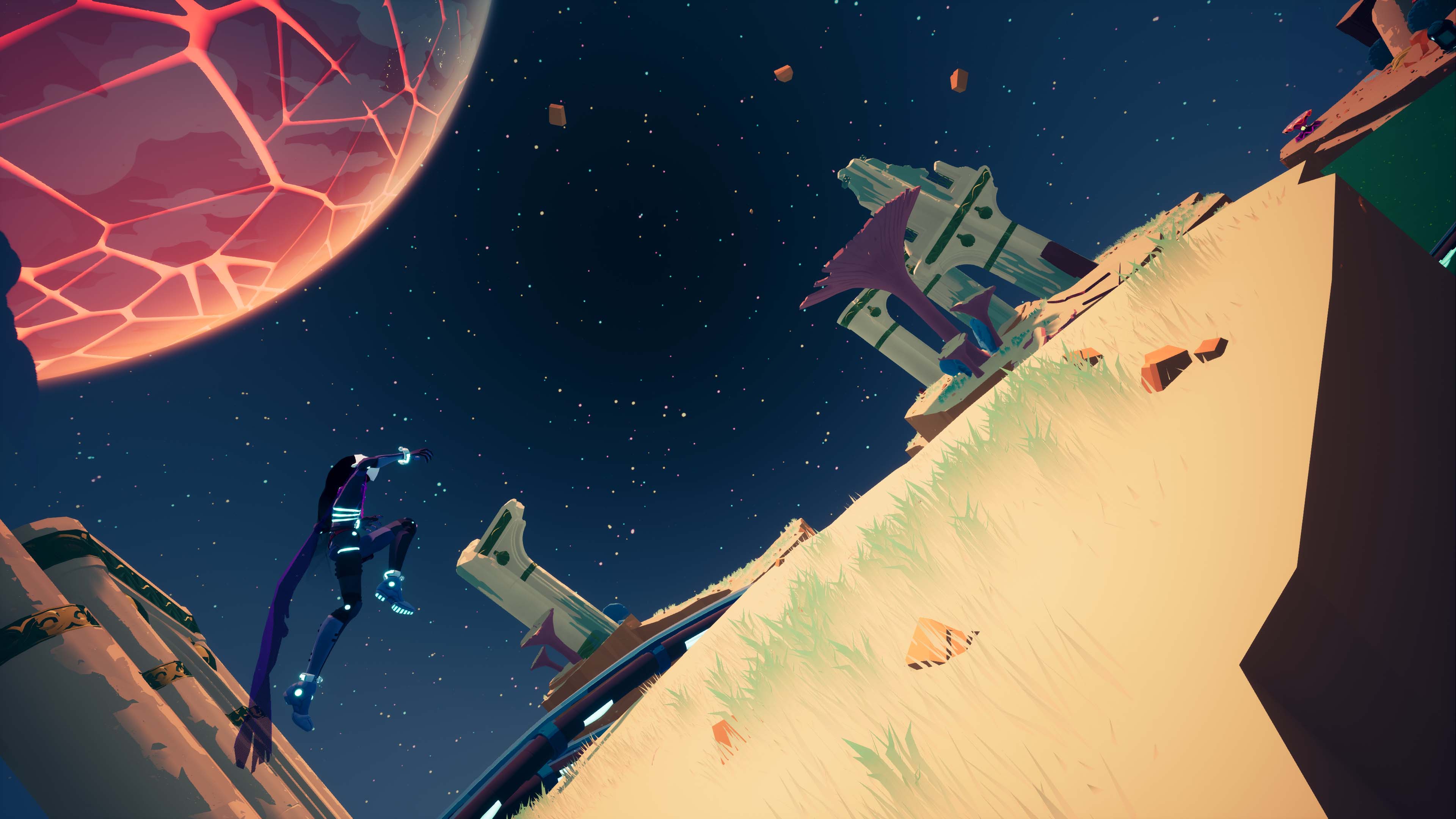
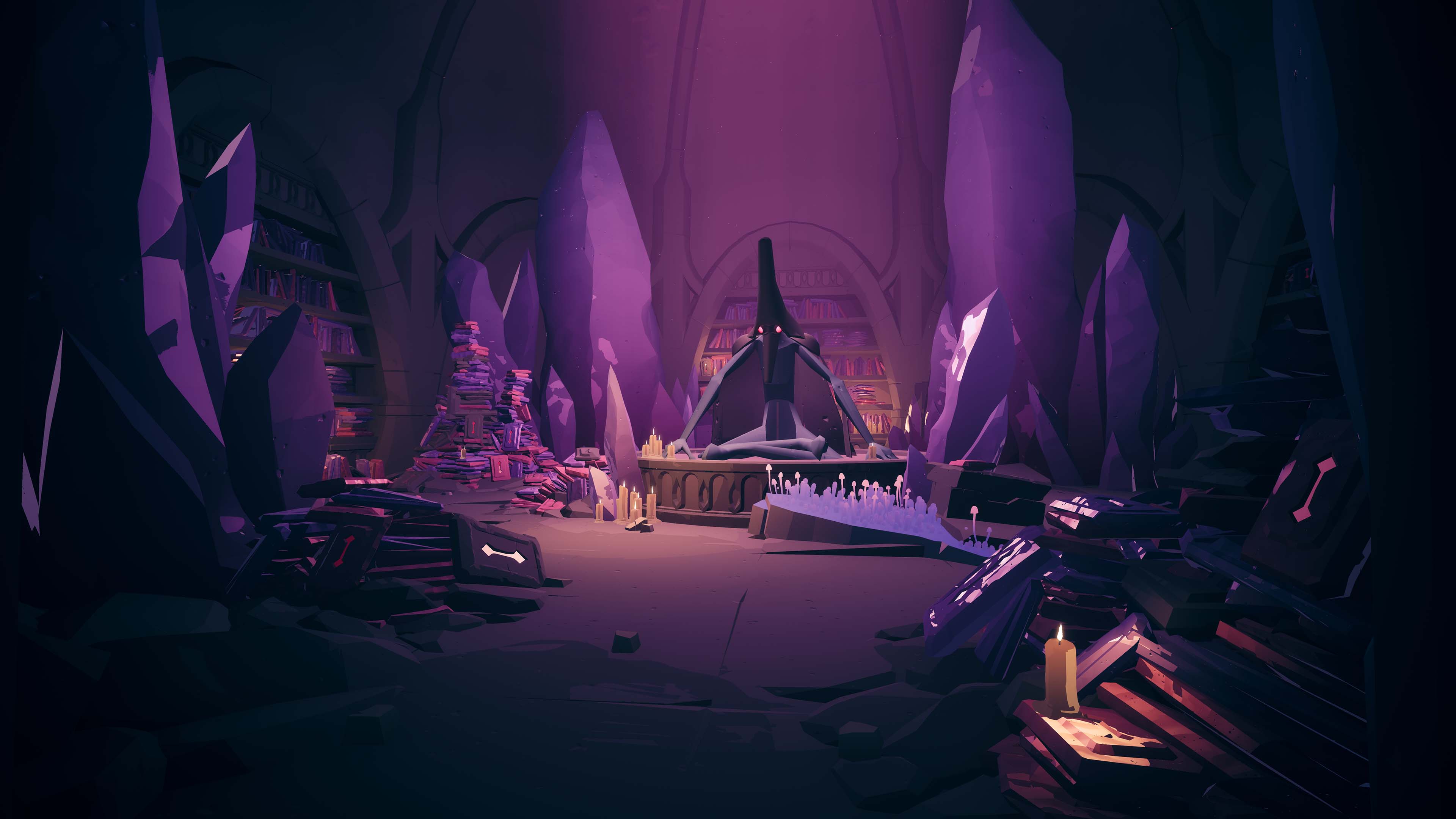
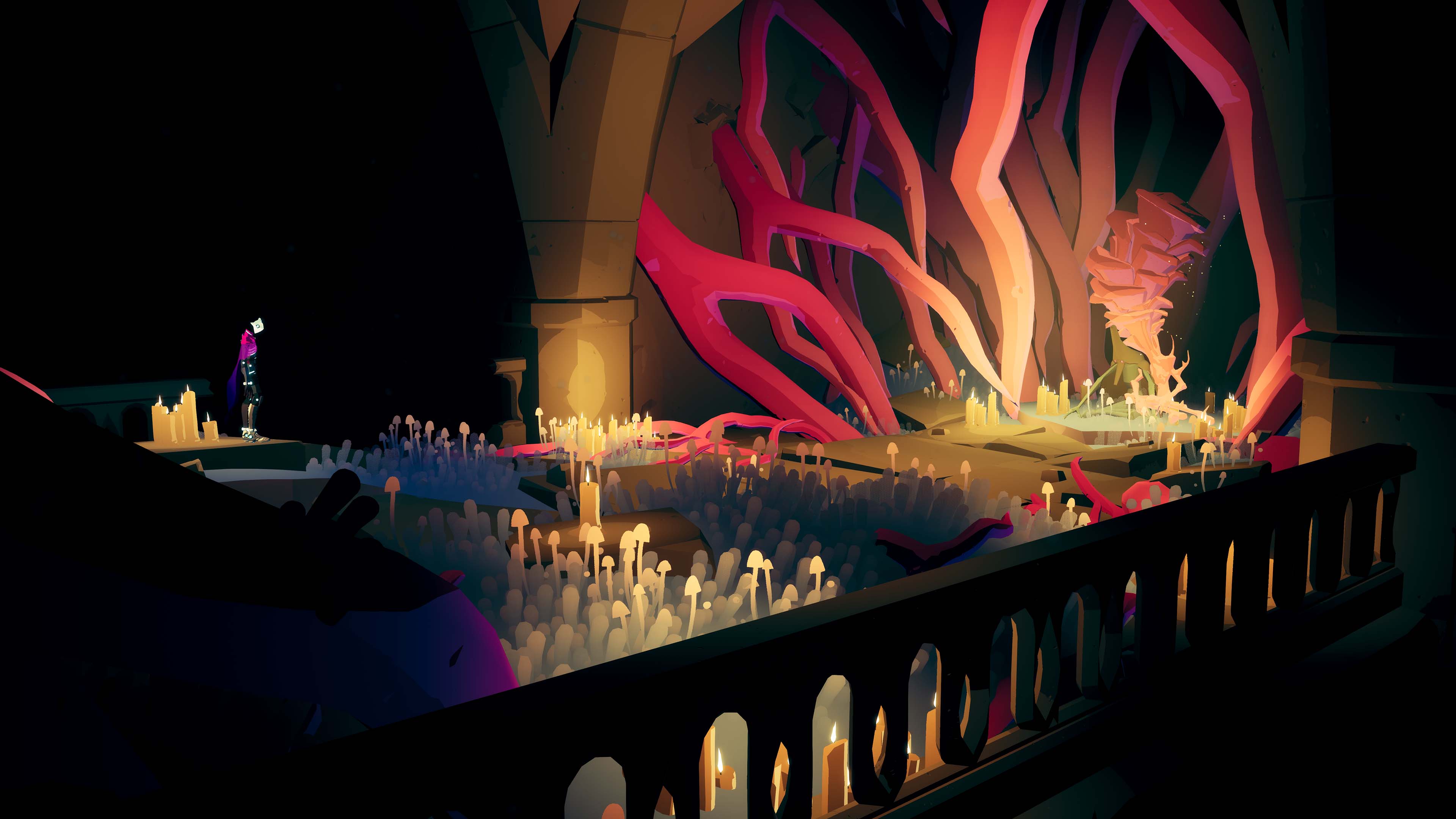





Published: Nov 29, 2021 11:38 pm